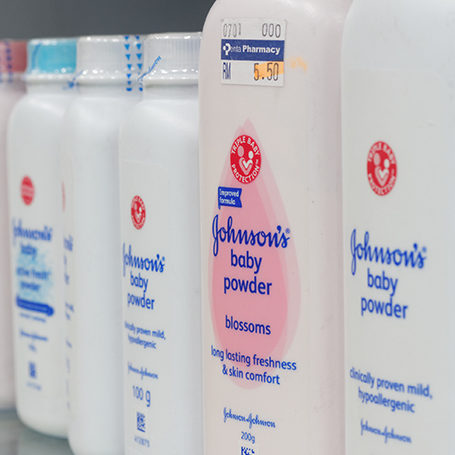After manufacturing a talc-based baby powder for over a century, Johnson & Johnson (J&J) announced in May that it’ll stop selling the product in the United States and Canada. In recent years, they’ve faced several lawsuits related to regular use causing both ovarian cancer and mesothelioma. Still, it wasn’t these lawsuits that caused them to stop manufacturing the product. It was the rapid spread of COVID-19 this spring and the need to place a priority on producing higher-demand items as well as the need to practice social distancing at both manufacturing and distribution facilities. Stores will continue to sell their existing inventory with no restocks planned.
Johnson & Johnson’s History of Lawsuits
Given the history of lawsuits related to J&J’s talcum powder, it’s surprising that the product has never been recalled.
Despite tens of thousands of lawsuits filed by women who developed ovarian cancer after using talcum powder — and the loss of multimillion dollars as a result of these cases — J&J continues to stand behind the safety of the product. Other companies have put warning labels on their talcum powders, but J&J refuses to do so. More research needs to be completed, but it’s important to note that some scientific studies do show that women have an increased risk of ovarian cancer after consistent use of talcum powder in their genital area.
A separate set of lawsuits ties the product to mesothelioma, as talc is often mined near asbestos. Scientists testified that they found asbestos in samples of the product, but J&J argued that their product was asbestos-free.

